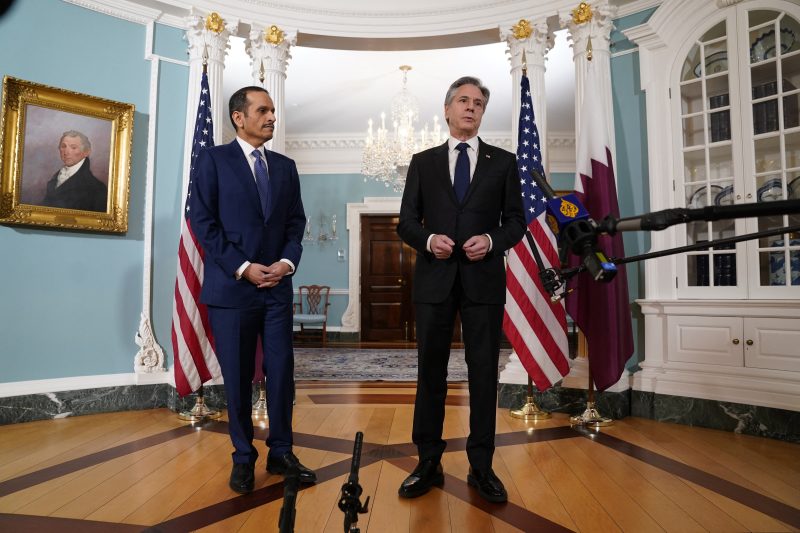In recent news, the United States has reportedly advised Qatar to expel Hamas from its territory if the group continues to obstruct the ongoing efforts to secure a deal for the release of an Israeli hostage in Gaza. This move reflects a strategic shift in the U.S. approach towards Hamas and its activities in the region.
Qatar, known for its role as a mediator and facilitator in various conflicts in the Middle East, has been urged to take a firm stand against Hamas if the group hinders the negotiation process for the release of the Israeli hostage. The U.S. has emphasized the importance of not allowing terrorist groups like Hamas to impede diplomatic efforts aimed at resolving complex and sensitive issues.
The issue of the Israeli hostage underscores the longstanding tensions between Israel and Hamas, with both sides engaging in a delicate dance of negotiations and power plays to achieve their objectives. The involvement of a third party such as Qatar adds another layer of complexity to the situation, as the country must now balance its relations with both the U.S. and Hamas while maintaining its regional influence.
Furthermore, this development highlights the increasing pressure on Qatar to demonstrate its commitment to countering terrorism and extremism, especially in light of its past associations with groups like Hamas. By heeding the U.S. call to expel Hamas if necessary, Qatar has the opportunity to align itself more closely with international norms and expectations regarding counterterrorism efforts.
While the outcome of this situation remains uncertain, it signals a shift in the geopolitical dynamics of the region and offers a glimpse into the evolving strategies of key players in the Middle East. In the midst of competing interests and regional rivalries, Qatar’s response to the U.S. directive regarding Hamas could have significant implications for the broader dynamics of the Israeli-Palestinian conflict and regional stability.
Ultimately, the evolving situation involving Qatar, Hamas, and the Israeli hostage underscores the delicate balance of power and interests at play in the Middle East. As international actors navigate this complex landscape, the need for diplomatic finesse, strategic maneuvering, and a steadfast commitment to peace and security becomes increasingly paramount. Only time will tell how this latest development will shape the trajectory of regional dynamics and ongoing efforts to resolve longstanding conflicts in the Middle East.

